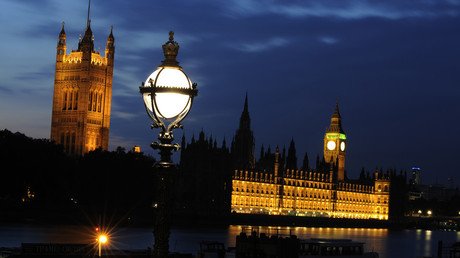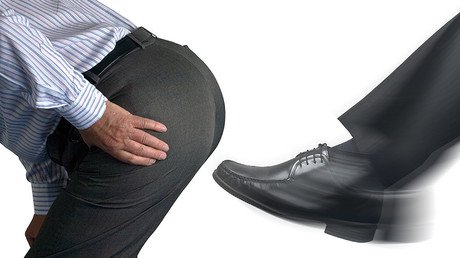Could groping MPs bring govt down quicker than Brexit debacle?

If recent reports from the British Parliament are true, there’s more chance of being groped in the Palace of Westminster than seeing a cogent Brexit law passed. That’s why a new parliamentary code of conduct is being suggested.
A group (or is that a grope?) of MPs has been looking into the issue of sexual harassment, and its report suggests a new set of rules. In the most extreme of cases, these could lead to elected members of parliament being removed from their seats.
There’s little doubt this is a dirty issue at the center of Westminster. One in five people at Parliament say they have experienced or witnessed sexual harassment or inappropriate behavior in the past year.
Then you have MPs like Sir Roger Gale, who has an interesting way of looking at the issue. He said last year he would not be taking on any more interns because “I will not subject myself or my family to the risk of accusation.” Or you could just avoid harassing people.
The group of politicians looking into the issue has been chaired by Conservative MP and Leader of the House Andrea Leadsom, who said “I made clear my personal desire to make Parliament a safe place to work where everyone feels respected and valued.”
Leadsom has in the past complained of receiving unwanted comments from fellow Tory Michael Fallon, which was among the accusations which forced him from his position as defense secretary. She was then the subject of rumors that she used her accusations for political gain. Downing Street denied Leadsom had demanded Fallon be sacked.
No one, however, should question her stated mission of making Parliament a “safe place,” even if the use of that favorite phrase of the snowflake generation will send shivers down spines.
But the idea of being able to sack an MP poses the question: could a sleazy hand on an unwilling knee actually bring the current government down sooner than its inept attempts to find a way out of the EU?
Very cynical observers might extrapolate the dangers of being able to sack MPs over claims of harassment, and wonder whether it could actually offer a political opportunity. Only very cynical observers though.
Leadsom’s report states “...where there is serious wrongdoing a member could lose their seat or be expelled.”
An MP losing a seat could seriously undermine a government with little or no majority. Like for example, Prime Minister Theresa May’s government.
The mathematical equation will look a little daunting to May. She has no outright majority and relies on the Democratic Unionist Party’s 10 MPs to prop up her government. She will be giving her fellow Tories some very serious looks at summer parties this year, that’s for sure.
Also at stake is the small matter of the sovereignty of the people. The people vote MPs into office, so in theory only the people should be able to remove them. Leadsom says the “Parliamentary Commissioners for Standards and the relevant parliamentary committees will have their roles strengthened” and called the report “a game-changer for all who work in Parliament.”
That may be true in more ways than one. If the removal of MPs is taken out of the hands of the people, where could that lead?
















